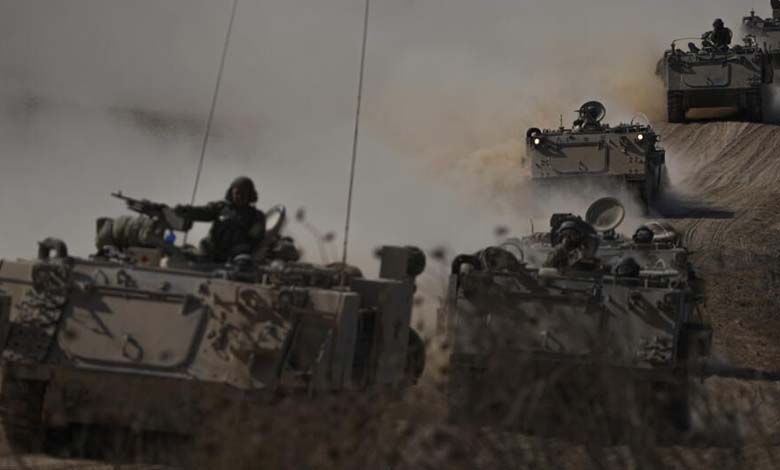Israel Caught Between Rafah and Iran.. Will it Break the Pressure Barrier?

A pledge to respond to the unprecedented Iranian attack, while at the same time threatening to invade Rafah in southern Gaza… This is how Israel finds itself caught in the escalation web.
Will Israel have to choose between Iranian retaliation and attacking Rafah, another refuge for Palestinian refugees in Gaza?
According to experts, Israel, which has pledged to carry out both objectives, cannot achieve them simultaneously.
Israeli Prime Minister Benjamin Netanyahu appeared determined to proceed on both fronts but did not provide a timeline for either.
Consideration is likely given to the appeals from its major ally, the United States, to exercise restraint following the rocket and drone attack launched by Tehran last Saturday, in addition to calls to protect Palestinian civilians in the besieged Gaza Strip amid the ongoing war, now in its 194th day.
Can Israel await a response?
Analysts consulted by AFP say that the Israeli army, which is already fighting Hamas in Gaza and Iran-backed factions elsewhere in the region, cannot continue fighting Iran as well.
Michael Horowitz, director of Le Beck International security consultancy, said, “Israel will not be able to launch an attack on Rafah and retaliate against Iran at the same time.”
Since the Iranian attack on Saturday, the public statements from successive Israeli cabinet war meetings have provided little clarity on Tel Aviv’s plans to respond.
Instead, the meetings largely revealed stark disagreements within the cabinet, with some hawkish ministers calling for punitive action against Tehran and an immediate strike on Rafah, while others preferred to wait.
Options That Do Not Lead to Escalation
According to experts, Israel is unlikely to be able to invade Rafah in Gaza and retaliate against Iran simultaneously.
In this regard, John Erath, director of policy at the Center for Arms Control and Non-Proliferation in Washington, explained that Israel is currently not facing a direct threat of another Iranian attack and has time to consider its next steps.
He added that Israeli leaders might “look for options that do not lead to an escalation” of tensions with the arch-foe Iran and provide an exit from the crisis.
Iran stated that through the attack, most of which was intercepted, it settled scores with Israel after a strike targeted its consulate in Damascus on April 1, resulting in the killing of IRGC commanders, including two generals.
The Israeli army, for its part, emphasized that it would respond to the Iranian attack, with military spokesperson Daniel Hager saying, “We will do so at the time and opportunity we choose.”
Has the Attack Affected Rafah Plans?
Israeli media quoted security sources as saying that the long-feared attack on Rafah, which was scheduled to begin this week, was disrupted by the Iranian strikes.
Israel argues that it must send ground forces into the city located in the far south of Gaza to “destroy Hamas battalions” there, despite international concerns about the fate of about 1.5 million Palestinians who have taken refuge in Rafah, most of them displaced by the fires of war elsewhere in Gaza.
With fighting and shelling continuing in central Gaza, Israel has refused to allow Palestinian civilians to return to the devastated north.
A statement released on Monday said that Israeli Defense Minister Yoav Galant chaired a meeting to discuss “a series of measures to be taken before operations in Rafah, especially the evacuation of civilians.”












